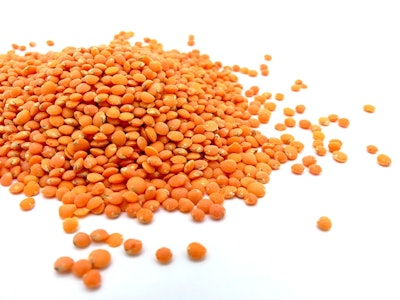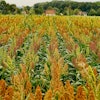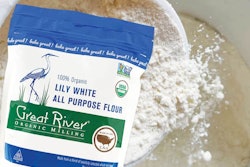
Lentils and pulses may be one of the keys to saving the planet. At least that's what one grain handler and processor believes.
Since 1995, Columbia Grain International (CGI) has brought high-quality pulses, produced by American farmers, to buyers in domestic and global markets. CGI is a vertically-integrated company that operates grain elevators, processing plants and agronomy centers stretched across the northern tier of the U.S. Its CEO, Jeff Van Pevenage, said lentils and pulses are an important part of a farmer's crop portfolio for the sustainability of the planet.
 Jeff Van Pevenage, CEO, CGIColumbia Grain International
Jeff Van Pevenage, CEO, CGIColumbia Grain International
Farmers began to grow pulses on fallow ground and saw good economic returns, he said. "This paired with an increasing consumer demand for plant-based products has popularized the pulse market here in America," he said.
The role of lentils in sustainability
Van Pevenage said adding lentils to crop rotations not only fulfills a demand for this popular food, but improves soil health, reduces greenhouse gas emissions and stores more carbon in the soil than most other plants -- up to 30% more.
"Lentils and other pulses are able to pull nitrogen from the atmosphere and convert it to a plant-available form in the soil," said Van Pevenage. "This process works not only to fertilize the lentils themselves, but also nourishes the soil for the next crop.
"Lentils are well adapted to semiarid conditions and tolerate drought stress well with shallow root systems that reserve groundwater for subsequent crops," he added.
CGI explores other climate-friendly grains
CGI is also exploring new climate-friendly crop varieties, like rice, which will greatly conserve water.
"Columbia Grain has entered the consumer-packaged goods (CPG) category with the acquisition of Great River Milling earlier this year," said Van Pevenage. "We're launching a line of climate-friendly long grain Rice as part of a partnership with AgriCapture."
Van Pevenage said these products are grown using unique sustainable methods that significantly reduce water consumption and greenhouse gas emissions, while building soil health.
"By 2030, conventional rice cultivation will be responsible for 23% of agriculture's contribution to global warming," he said. "Climate-friendly rice is a great way to support the farmers that are leading the transition to climate-smart agriculture, while promoting a healthier people and planet."
CGI will be hosting listening sessions with farmers to discuss the progression of climate friendly crops.
"Sustainable agriculture and building better soil health are key conversations regarding the future of food and farming initiatives," said Van Pevenage. "Regenerative agriculture helps to improve soil health, which promotes the long-term sustainability of farming. We know that healthy soils are more productive, have better water retention and are more resistant to erosion."



















